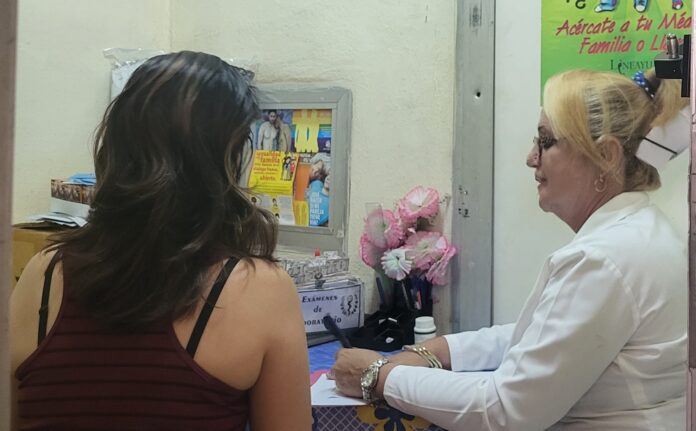 Face-to-Face Counselling, at the Gustavo Aldereguía polyclinic. |
To act swiftly in the face of the incidence of sexually transmitted infections, especially the Human Immunodeficiency Virus (HIV), the Differentiated Attention Service was created in Las Tunas, which for a little over a month has been providing advice and guidance on the rapid self-examination test to determine serological status.
Las Tunas, Cuba.- Yamilé Reyes Feliz, in charge of the Key Populations Project and the Differentiated Attention Service, explained to the press that this space, the only one of its kind in the territory, focuses on the general population, but with emphasis on those who have been exposed to the risk of contracting HIV.
Reyes Feliz said that to ensure the optimization of services, they carry out an HIV test and an epidemiological survey of the patient who comes for help. In addition, they guarantee treatment to prevent them from becoming HIV-positive, through the option of pre-exposure prophylaxis (PrEP).
Thanks to the health care commitment to protect the most vulnerable groups, this treatment is offered, which consists of the administration of antiretroviral drugs, aimed at adults who are HIV-negative and at high risk of acquiring the infection, including those who practice unprotected sex or have HIV-positive partners.
To guarantee the quality of the service, a multidisciplinary team composed of a clinician, a psychologist, and the coordinators in the municipality and the province, in a confidential consultation, is united in the care.
This new development in Las Tunas is based the Face-to-Face Counselling, at the Gustavo Aldereguía polyclinic, in this city, every Wednesday from 1:00 to 4:00 in the afternoon. The mission is to reduce the scourge of STIs/HIV-AIDS and contribute to guaranteeing the sexual and reproductive health of the population.
Extending this initiative to community activities, medical clinics in different health areas, and school environments is already a priority so that the most vulnerable age groups can count on close and reliable help.





